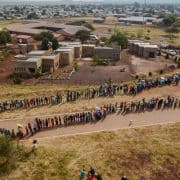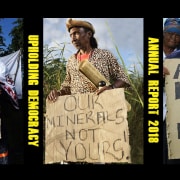|
Getting your Trinity Audio player ready...
|
September 15 is the International Day of Democracy. The day was first proclaimed on 8 November 2007 with a resolution issued by the UN General Assembly.
The aim is to promote and uphold the principles of democracy, a system of government that allows citizens to exercise their power and will directly or through chosen representatives.
The theme this year is Democracy and Conflict Prevention. The focus lies on the critical need to strengthen democratic institutions to promote peace and stability, which will in turn result in a resilient society. However, this calls for effective and inclusive democratic governance with respect for human rights and the rule of law.
The preamble of UN resolution 62/7 for the International Day of Democracy reaffirms that:
- …while democracies share common features, there is no single model of democracy and that democracy does not belong to any country or region…
- …democracy is a universal value based on the freely-expressed will of people to determine their own political, economic, social and cultural systems, and their full participation in all aspects of life.
The International Day of Democracy provides an opportunity to review the state of democracy in the world. Democracy is as much a process as a goal, and only with the full participation of and support by the international community, national governing bodies, civil society and individuals, can the ideal of democracy be made into a reality to be enjoyed by everyone, everywhere.
Resolution 62/7 is also mindful of “the central role of parliaments and the active involvement of civil society organisations and media and their interaction with governments at all levels in promoting democracy, freedom, equality, participation, development, respect for human rights and fundamental freedoms and the rule of law”.
Conditions such as strong leadership to support democracy, strengthen civil society, empower women and uphold the rule of law will allow stability and peace to thrive.
Resilient societies are able to mitigate disputes through mediation, dialogue and a reasonable degree of legitimacy of their institutions. Developing effective conflict prevention mechanisms and infrastructures provides a foundation to resolve grievances and sustain peace. Processes, such as peace agreements, elections and constitutional reforms, can help maintain equilibrium between competing interests and reduce fragility and the likelihood of organised violence.








